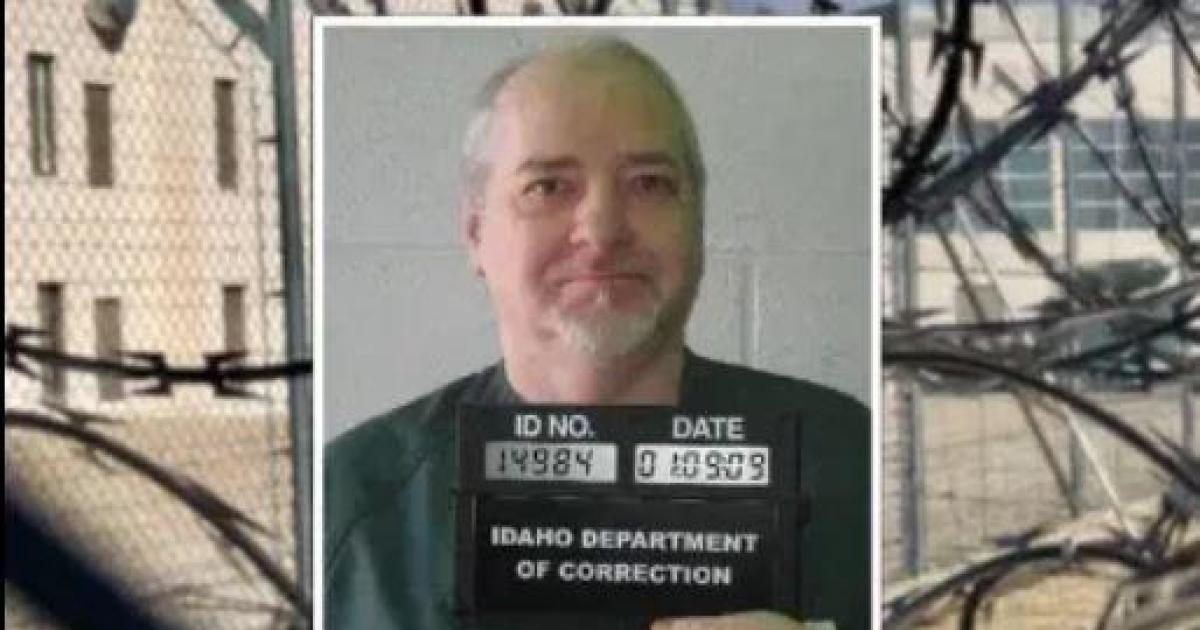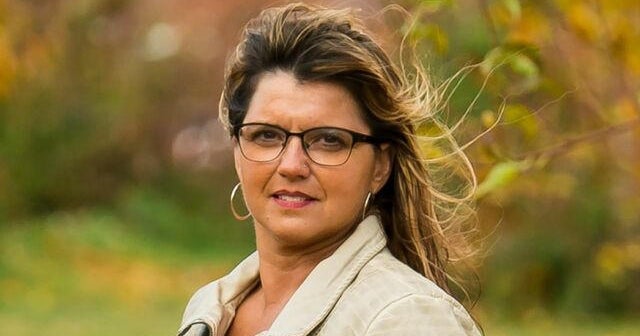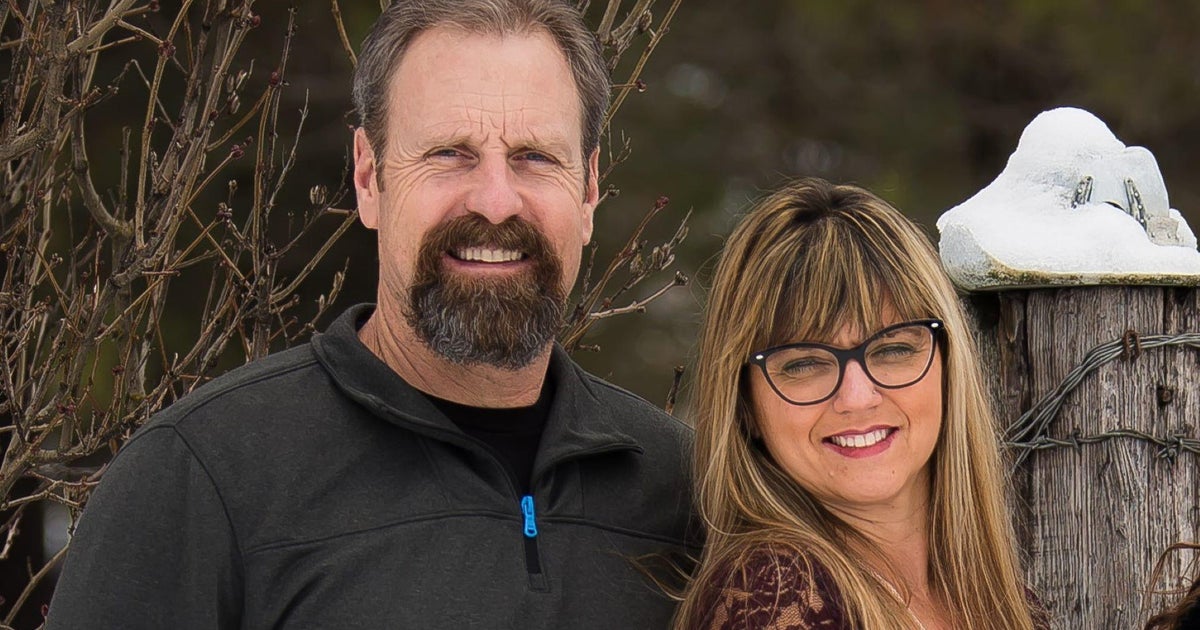CBS News
Idaho is set to execute Thomas Creech, infamous serial killer linked to at least 11 deaths

For nearly 50 years, Idaho’s prison staffers have been serving Thomas Eugene Creech three meals a day, checking on him during rounds and taking him to medical appointments.
This Wednesday, some of Idaho’s prison staffers will be asked to kill the convicted serial killer. Barring any last-minute stay, the 73-year-old, one of the nation’s longest-serving death row inmates, will be executed by lethal injection for killing a fellow prisoner with a battery-filled sock in 1981.
Creech’s killing of David Jensen, a young, disabled man who was serving time for car theft, was his last in a broad path of destruction that saw Creech convicted of five murders in three states. He is also suspected of at least a half-dozen others.
But now, decades later, Creech is mostly known inside the walls of the Idaho Maximum Security Institution as just “Tom,” a generally well-behaved old-timer with a penchant for poetry. His unsuccessful bid for clemency even found support from a former warden at the penitentiary, prison staffers who recounted how he wrote them poems of support or condolence and the judge who sentenced Creech to death.
“Some of our correctional officers have grown up with Tom Creech,” Idaho Department of Correction Director Josh Tewalt said Friday. “Our warden has a long-standing relationship with him. … There’s a familiarity and a rapport that has been built over time.”
Creech’s attorneys have filed a flurry of last-minute appeals in four different courts in recent months trying to halt the execution, which would be Idaho’s first in 12 years. They have argued Idaho’s refusal to say where its execution drug was obtained violates his rights and that he received ineffective assistance of counsel.
His attorneys also claim the state presented false eveidence against Creech during his clemency hearing, CBS affiliate KBOI-TV reported. Creech’s attorneys claimed that the prosecutors showed a PowerPoint with a picture of a sock with Creech’s name on it and the image was sllegedly accompanied by text that said: “Mr. Creech said, there were names on all the socks, the weapon was labeled Garza.”
A three-judge panel of the 9th U.S. Circuit Court of Appeals on Friday rejected an argument that Creech should not be executed because he was sentenced by a judge rather than a jury. Creech’s attorneys said they were disappointed by the ruling, citing the judge who imposed the sentence, KBOI-TV reported.
“The court’s decision … doesn’t change the fact that the very judge who sentenced Tom to death now opposes his execution because it would just be an ‘act of vengeance,'” said Deborah A. Czuba, the Federal Defender Services of Idaho attorney who leads the capital defense unit.
His attorneys vowed to keep fighting to save him from execution and said Creech had become a friend over the last 25 years.
“Ultimately, it will be impossible for the state to execute the Tom Creech of 1974,” Czuba said. “He died inside Tom a long time ago, replaced by a harmless, remorseful and compassionate man who evolved into a valued, respected and beloved member of the prison community in which he has lived and been punished for 50 years.”
It’s not clear how many people Creech, an Ohio native, killed before he was imprisoned in Idaho in 1974. At one point he claimed to have killed as many as 50 people, but many of the confessions were made under the influence of now discredited “truth serum” drugs and filled with outlandish tales of occult-driven human sacrifice and contract killings for a powerful motorcycle gang.
Official estimates vary, but authorities tend to focus on 11 deaths.
Just last month, investigators in California closed a decades-old cold case in San Bernardino County, connecting Daniel Walker’s 1974 murder to Creech, CBS Los Angeles reported.
In 1973, Creech was tried for the murder of 70-year-old Paul Schrader, a retiree who was stabbed to death in the Tucson, Arizona, motel where Creech was living. Creech used Schrader’s credit cards and vehicle to leave Tucson for Portland, Oregon. A jury acquitted him, but authorities say they have no doubt he was responsible.
The next year, Creech was committed to Oregon State Hospital for a few months. He earned a weekend pass and traveled to Sacramento, California, where he killed Vivian Grant Robinson at her home. Creech then used Robinson’s phone to let the hospital know he would return a day late. That crime went unsolved until Creech later confessed while in custody in Idaho; he wasn’t convicted until 1980.
After he was released from the Oregon State Hospital, Creech got a job at a church in Portland doing maintenance work. He had living quarters at the church, and it was there he shot and killed 22-year-old William Joseph Dean in 1974. Authorities believe he then fatally shot Sandra Jane Ramsamooj at the Salem grocery store where she worked.
Creech was finally arrested in November 1974. He and a girlfriend were hitchhiking in Idaho when they were picked up by two painters, Thomas Arnold and John Bradford. Creech shot both men to death and the girlfriend cooperated with authorities.
While in custody, Creech confessed to a number of other killings. Some appeared to be fabricated, but he provided information that led police to the bodies of Gordon Lee Stanton and Charles Thomas Miller near Las Vegas, and of Rick Stewart McKenzie, 22, near Baggs, Wyoming.
Creech initially was sentenced to death for killing the painters. But after the U.S. Supreme Court barred automatic death sentences in 1976, his sentence was converted to life in prison.
That changed after he killed Jensen, who was serving time for car theft. Jensen’s life hadn’t been easy: He suffered a nearly fatal gun injury as a teen that left him with serious disabilities including partial paralysis.
Jensen’s relatives opposed Creech’s bid for clemency. They described Jensen as a gentle soul and a prankster who loved hunting and spending time outdoors, who was “the peanut butter” to his sister’s jelly. His daughter, who was 4 when he was killed, spoke of how she never got to know him, and how unfair it was that Creech is still around when her father isn’t.
Creech’s supporters, meanwhile, say decades spent in a prison cell have left him changed. One death row prison staffer told the parole board last month that while she cannot begin to understand the suffering Creech dealt to others, he is now a person who makes positive contributions to his community. His execution date will be difficult for everyone at the prison, she said, especially those who have known him for years.
“I don’t want to be dismissive of what he did and the countless people who were impacted by that in real significant ways,” said Tewalt, the corrections director. “At the same time, you also can’t be dismissive of the effect it’s going to have on people who have established a relationship with him. On Thursday, Tom’s not going to be there. You know he’s not coming back to that unit – that’s real. It would be really difficult to not feel some sort of emotion about that.”
According to the Death Penalty Information Center, only three people have been executed in Idaho since 1976, and there are currently eight inmates on the state’s death row.
CBS News
Transcript: Sen. Mark Kelly on “Face the Nation with Margaret Brennan,” Oct. 6, 2024

The following is a transcript of an interview with Sen. Mark Kelly, Democrat of Arizona, on “Face the Nation with Margaret Brennan” that aired on Oct. 6, 2024.
MARGARET BRENNAN: Joining us now is Arizona’s Democratic Senator, Mark Kelly. He’s in Detroit this morning on the campaign trail for the Harris campaign. Good morning to you, Senator.
SEN. MARK KELLY: Good morning, Margaret.
MARGARET BRENNAN: I want to talk to you about Arizona, but let’s start in Michigan, which is where you are right now. And it is going to be such a key state to a potential Harris or Trump victory. Vice President Harris is facing challenges among black men, working class people, as well as the Muslim and Arab populations skeptical of the White House support for Israel’s wars. What are you hearing on the ground there from voters?
SEN. KELLY: Well, my wife, Gabby Giffords, and I have been out here for a couple days. We’ve been campaigning across the country, Michigan, I’ve been in North Carolina, Georgia as well. I’ll be back to Arizona here soon. The vice president was out here speaking to Muslim organizations and the Arab community about what is at stake in this election and addressing the concerns that they have. What we’re hearing, issues about the economy, about gun violence, about, you know, supporting American families and the difference between Donald Trump and Kamala Harris. You know, Kamala Harris, who has a vision for the future of this country, Donald Trump, who just wants to drag us backwards.
MARGARET BRENNAN: Today in Dearborn, Michigan, there’s a funeral service for an American man who was killed in Lebanon by an Israeli airstrike. It just underscores how that community you’re talking about out in Michigan feel some of what’s happening in a personal way to their community. Given how close this race is, do you think this war and the expectation it could escalate could cost Democrats both a seat in the Senate and potentially the presidency?
SEN. KELLY: Margaret, nobody wants to see escalation and it’s tragic when any innocent person, whether it’s an American or Palestinian, lose their life in a conflict. Tomorrow’s one year since October 7th, when Israel was violently attacked. Israel has a right to defend itself, not only from Hamas, but from Hezbollah and from the Iranians. But, you know, I and my wife, you know, we feel for the community here who’s been affected by this. And that’s why the vice president was out here earlier, a few days ago, meeting with that community.
MARGARET BRENNAN: But it’s a live issue.
SEN. KELLY: Yeah, sure. I mean, there is an ongoing conflict in the Middle East. Israel is, you know, fighting a war now on, I think it’s fair to say, two fronts and then being attacked by the Iranians as well. And, they- they need to defend themselves, and we need to support our Israeli ally. At the same time, when women and children lose their life, innocent people in a conflict, it is- it is tragic.
MARGARET BRENNAN: You do sit on the Senate Intelligence Committee and so I know you know how intense the efforts are by foreign actors to try to manipulate voters going into November. Just this Friday, Matthew Olsen, the lead on election threats at the Department of Justice, told CBS the Russians are, quote, highlighting immigration as a wedge issue. That is such a key issue in Arizona. Are you seeing targeted information operations really focusing in on Arizonans right now?
SEN. KELLY: Not only in Arizona, in other battleground states. It’s the Russians, the Chinese, the Iranians, and it’s significant. And we need to do a better job getting the message out to the American people that there is a huge amount of misinformation. If you’re looking at stuff on Twitter, on TikTok, on Facebook, on Instagram, and it’s political in nature, and you may- might think that that person responding to that political article or who made that meme up is an American. It could be- it could look like a U.S. service member. There is a very reasonable chance I would put it in the 20 to 30% range, that the content you are seeing, the comments you are seeing, are coming from one of those three countries: Russia, Iran, China. We had a hearing recently, with the FBI director, the DNI, and the head of the National Security Agency. And we talked about this. And we talked about getting the word out. And it’s up to us, so thank you for asking me the question, because it’s up to us, the people who serve in Congress and the White House to get the information out there, that there is a tremendous amount of misinformation in this election, and it’s not going to stop on November 5th.
MARGARET BRENNAN: Understood. And we will do our best to help parse that for viewers. But on the topic of the border, President Biden did announce just this past week new regulations to keep in place that partial asylum ban that he rolled out back in June. That’s what’s credited with helping to bring down some of the border crossing numbers in recent weeks. It was supposed to be a temporary policy, dependent on how many people were crossing at a time. Do you think this is the right long term policy, or is this just a gimmick to bring down numbers ahead of the election?
SEN. KELLY: Well, the right long term policy is to do this through legislation. And we were a day or two away from doing that, passing strong border security legislation supported by the vice president, negotiated by the vice president, and the president and his Department of Homeland Security, with Democrats and Republicans–
MARGARET BRENNAN: But this is not legislation.
SEN. KELLY: –This is bipartisan. This isn’t. But the legislation was killed by Donald Trump. We were really close to getting it passed. That’s the correct way to do this. When you can’t do that, Margaret, when a former president interrupts the legislative process the way he did, which is the most hypocritical thing I’ve ever seen in my three and a half years in the Senate. After that happened, the only other option is executive actions. And this has gone from what was chaos and a crisis at our southern border to somewhat manageable. And if you’re the border- Border Patrol, you know, this is this- you need this. I mean, otherwise it is unsafe for Border Patrol agents, for CBP officers, for migrants, for communities in southern Arizona. So it’s unfortunate that this was the- these were the steps that had to be taken.
MARGARET BRENNAN: Okay.
SEN. KELLY: But that’s because the former president didn’t allow us to do this through legislation.
MARGARET BRENNAN: Senator, we have to leave it right there. Face the Nation will be right back.
CBS News
10/6: Sunday Morning – CBS News

Watch CBS News
Be the first to know
Get browser notifications for breaking news, live events, and exclusive reporting.
CBS News
Sen. Mark Kelly says Americans need to know about “huge amount of misinformation” on election

Watch CBS News
Be the first to know
Get browser notifications for breaking news, live events, and exclusive reporting.







